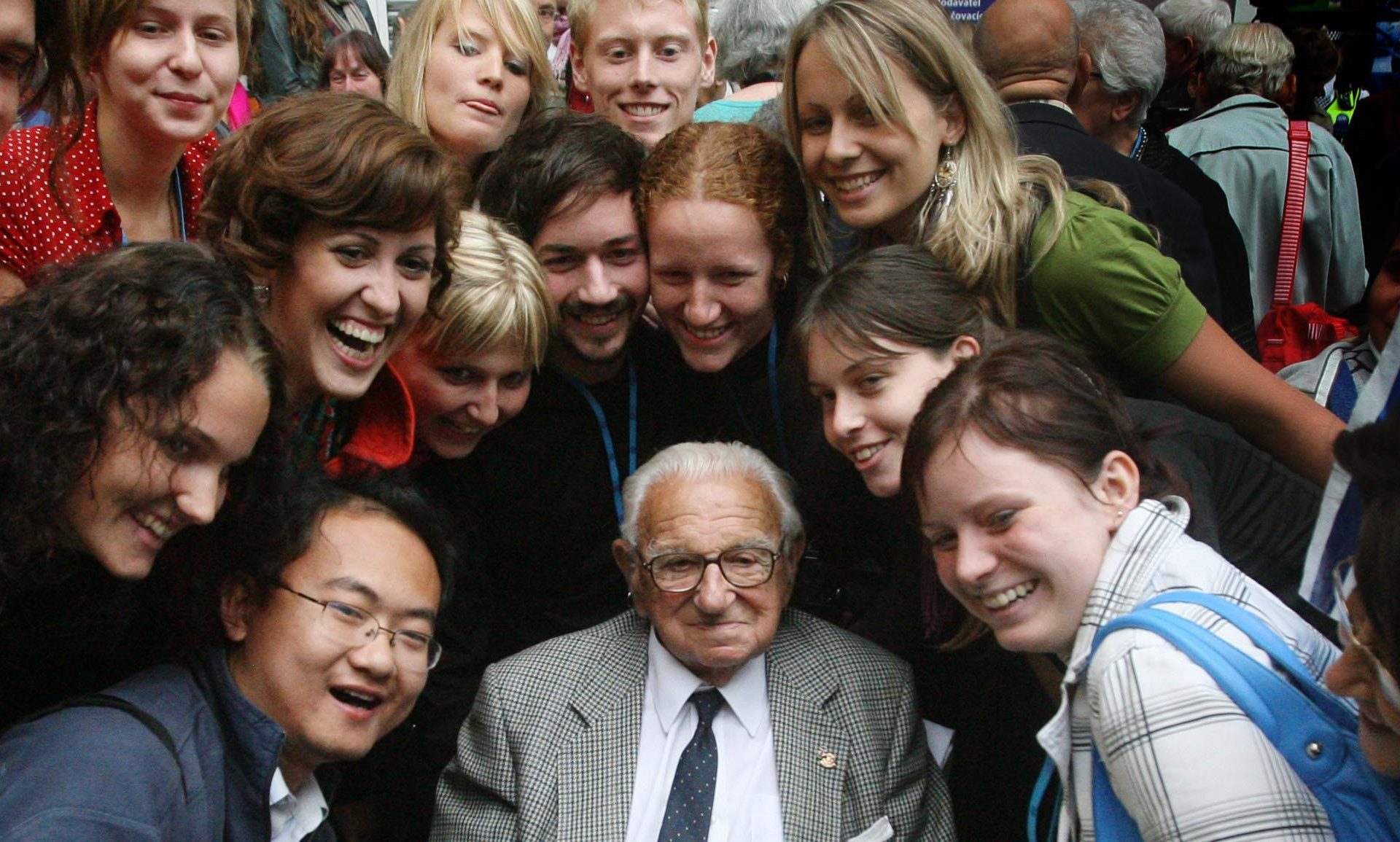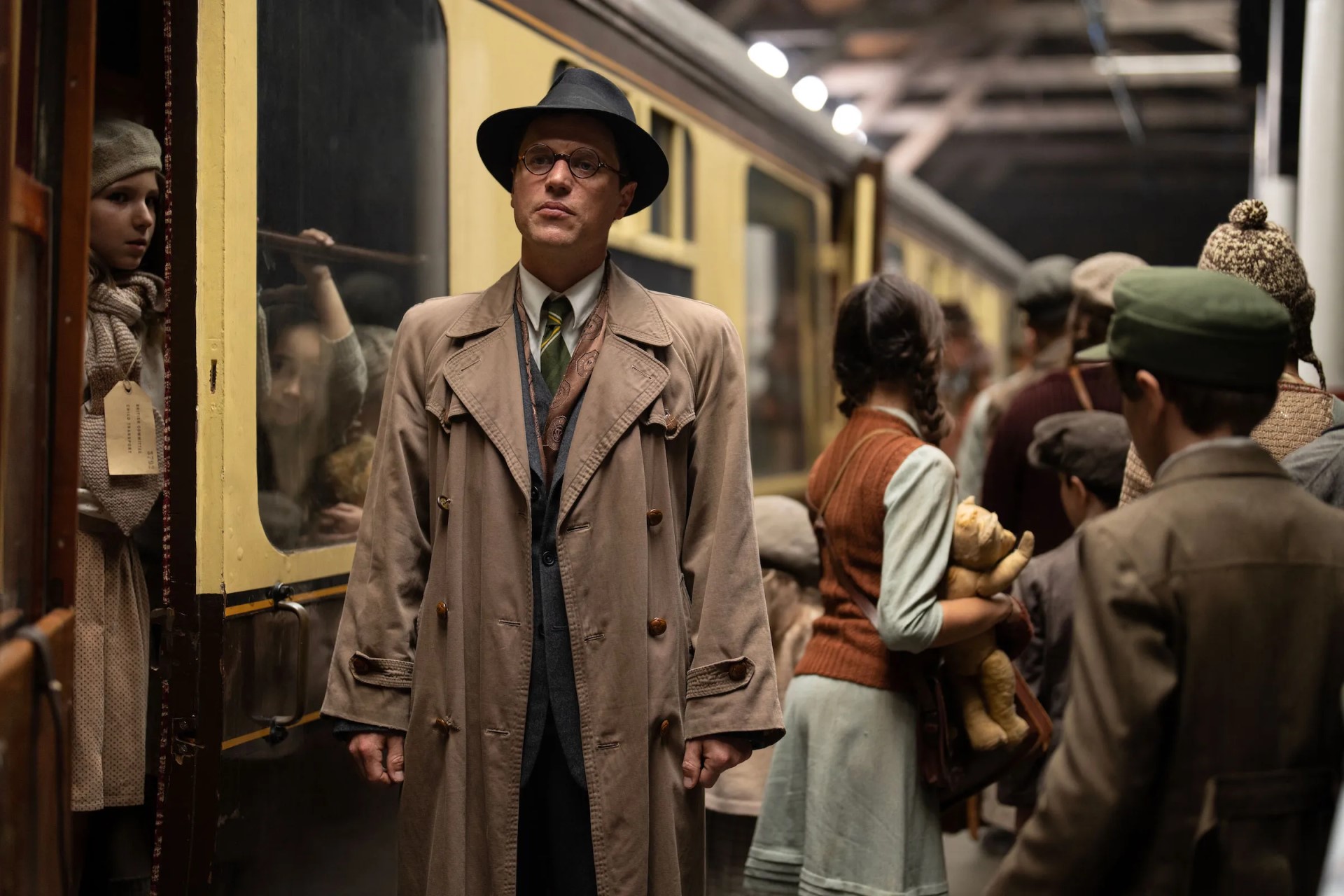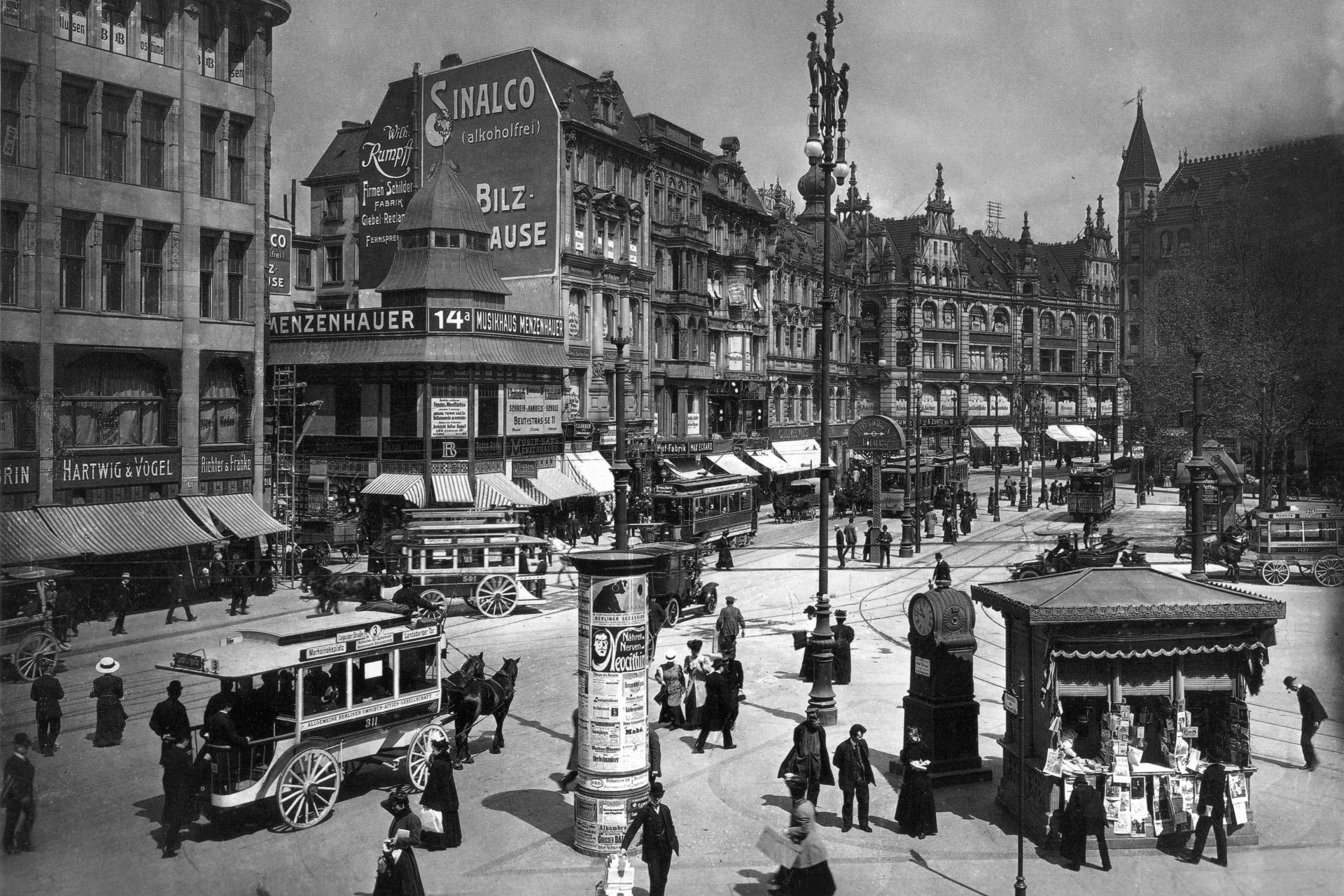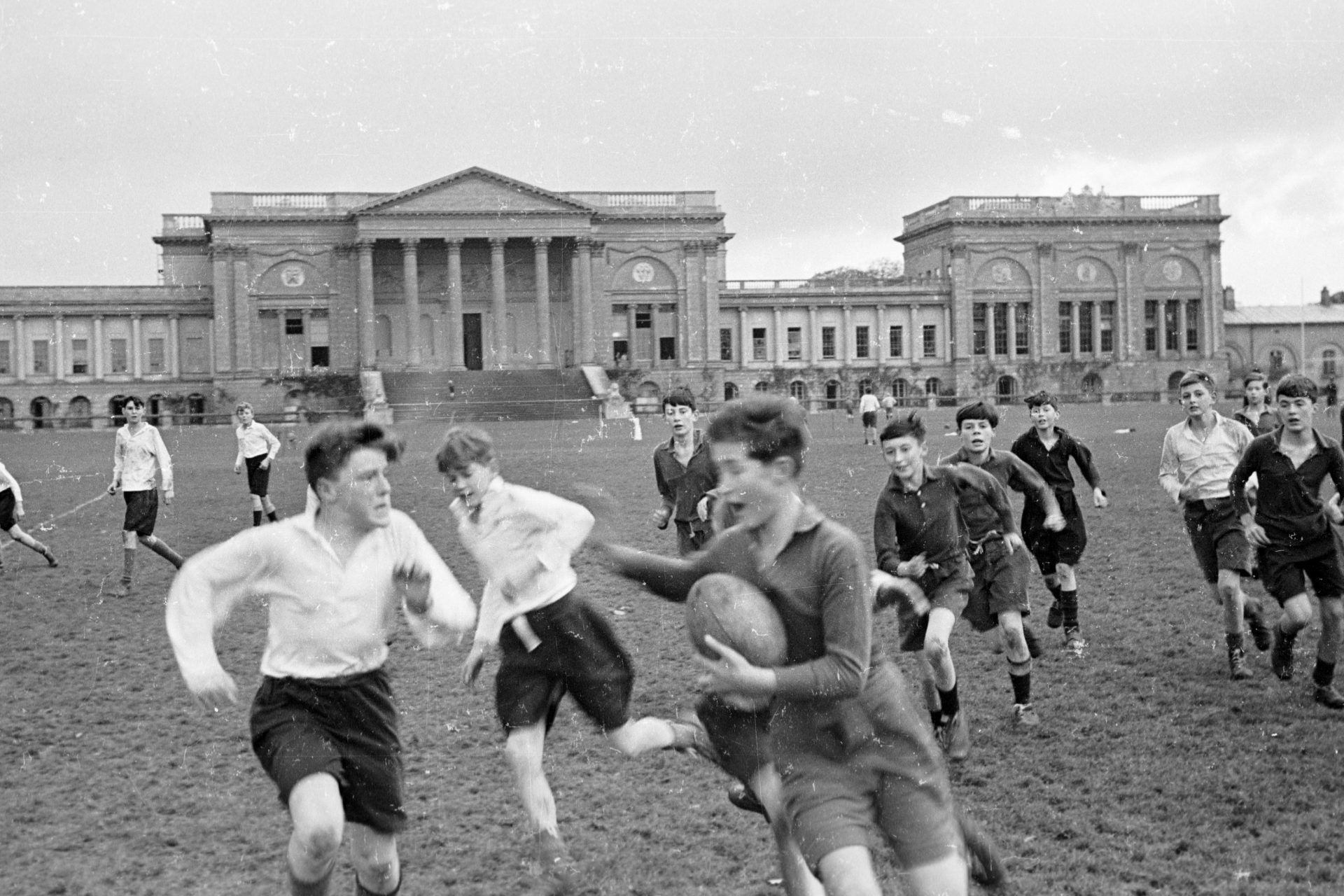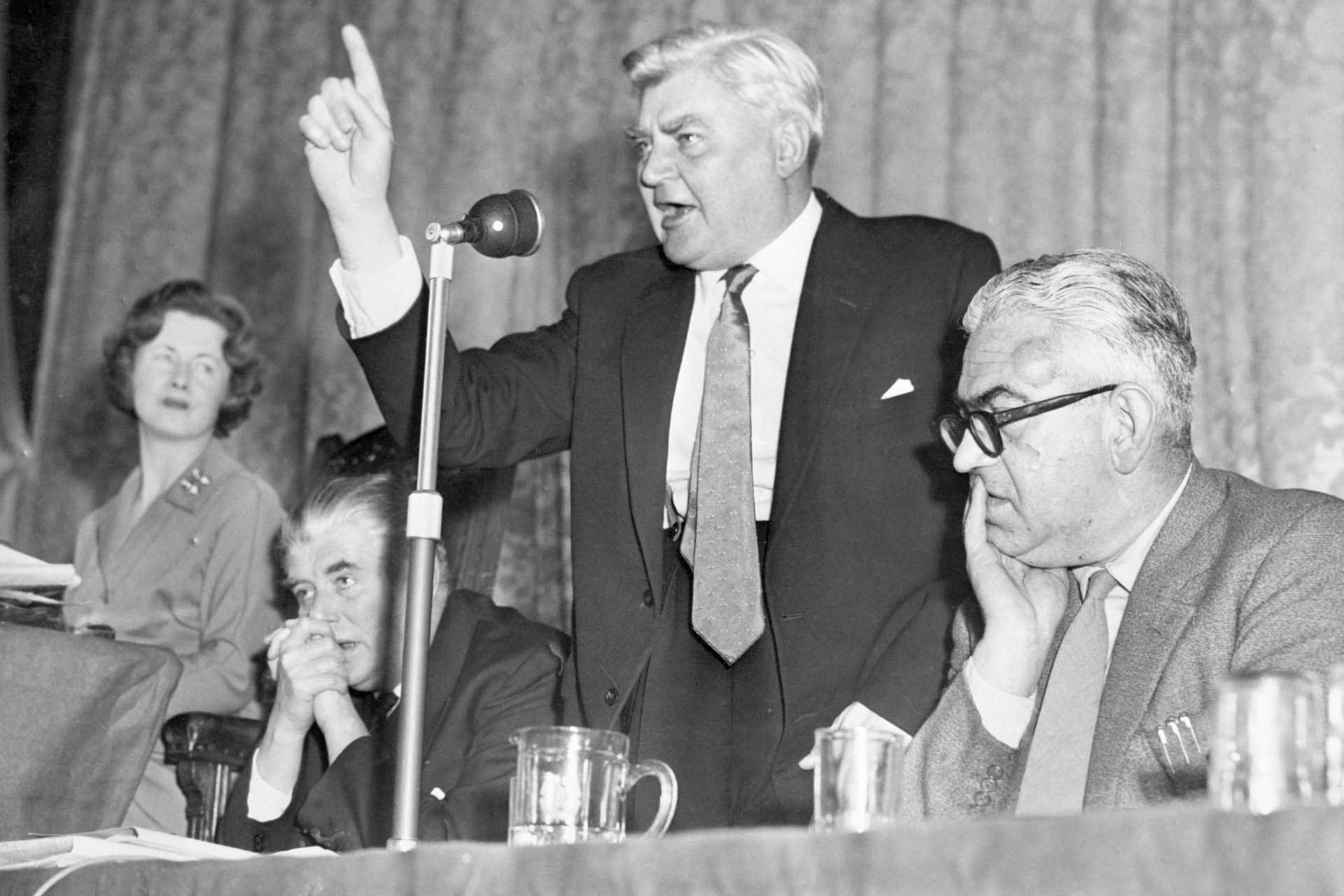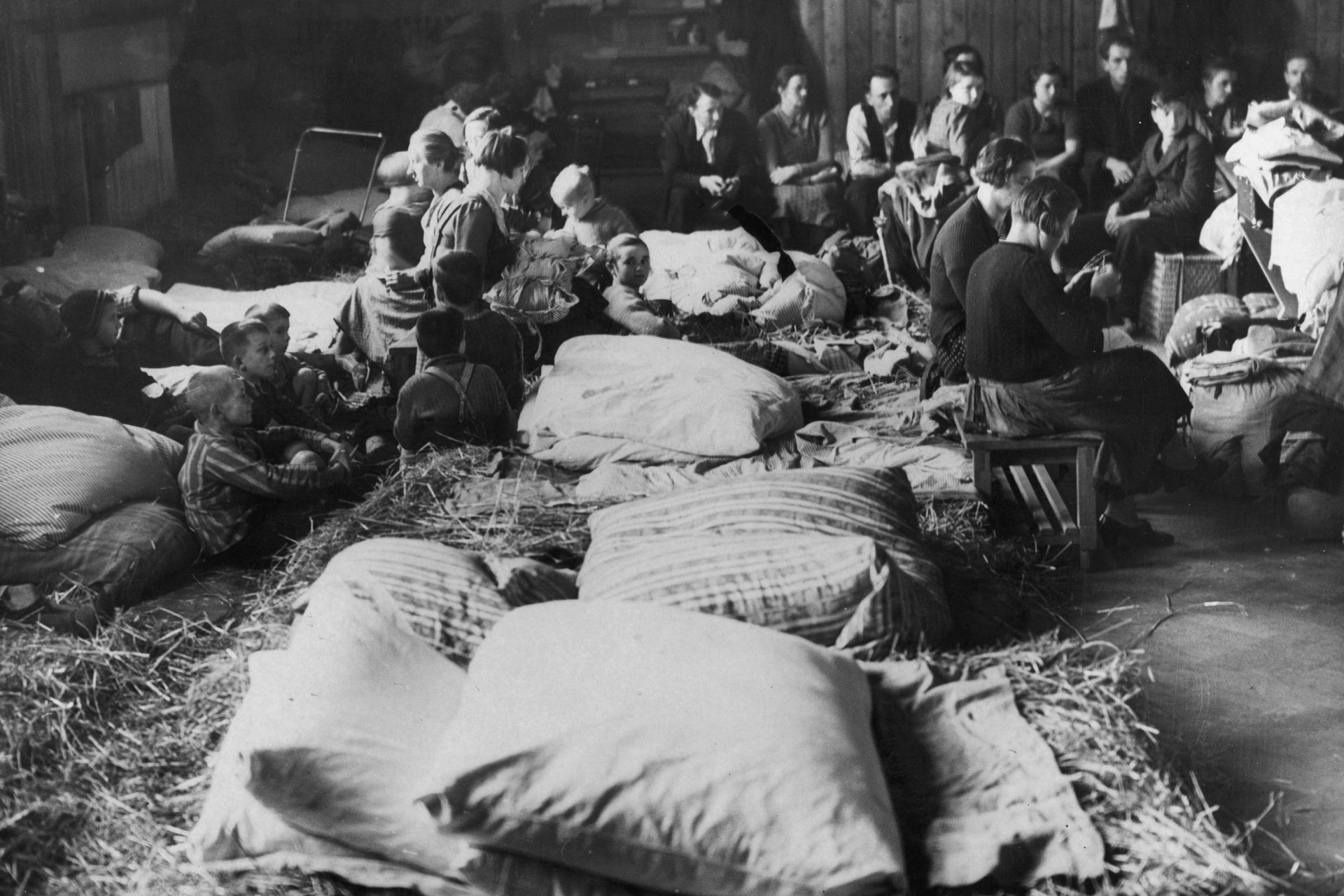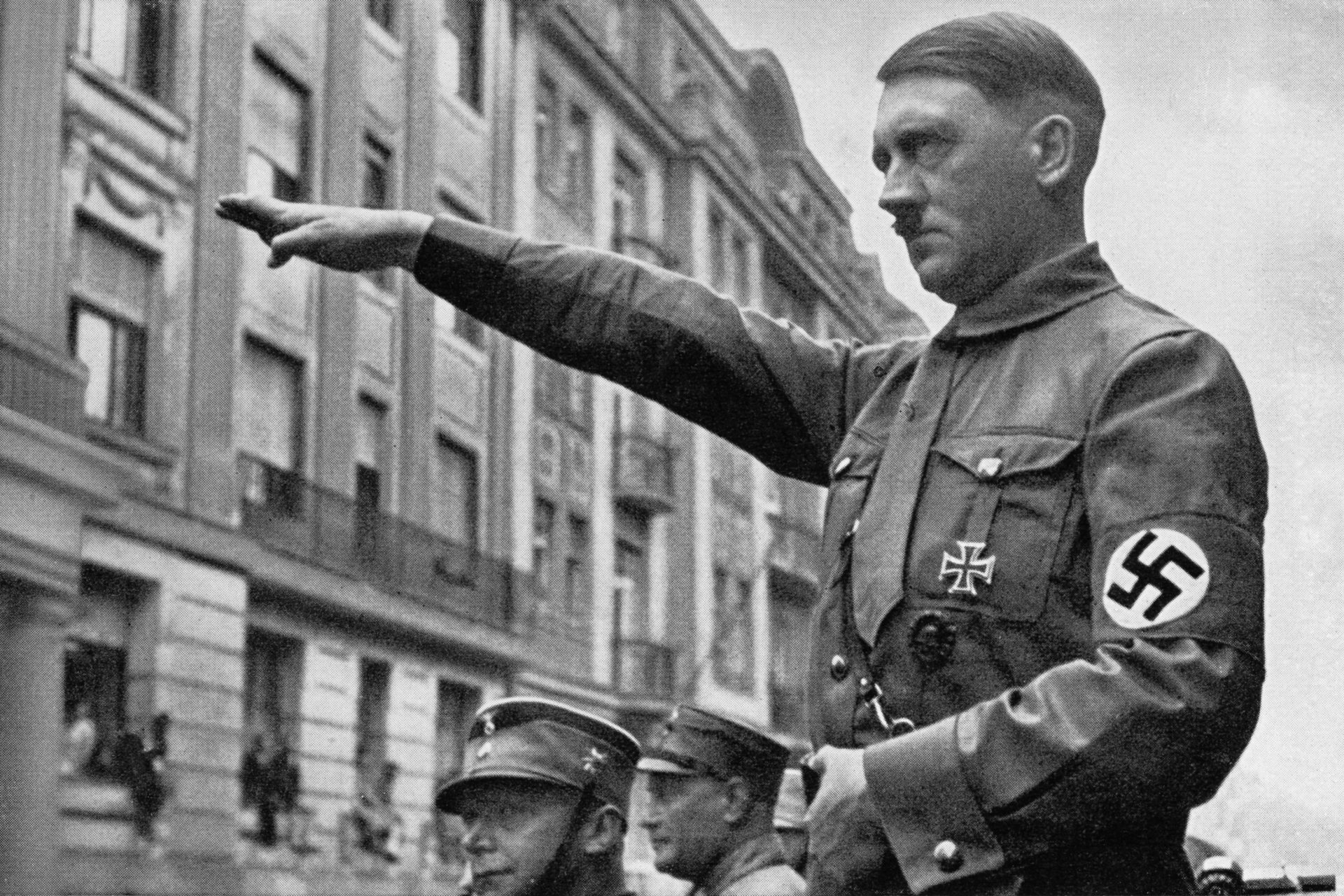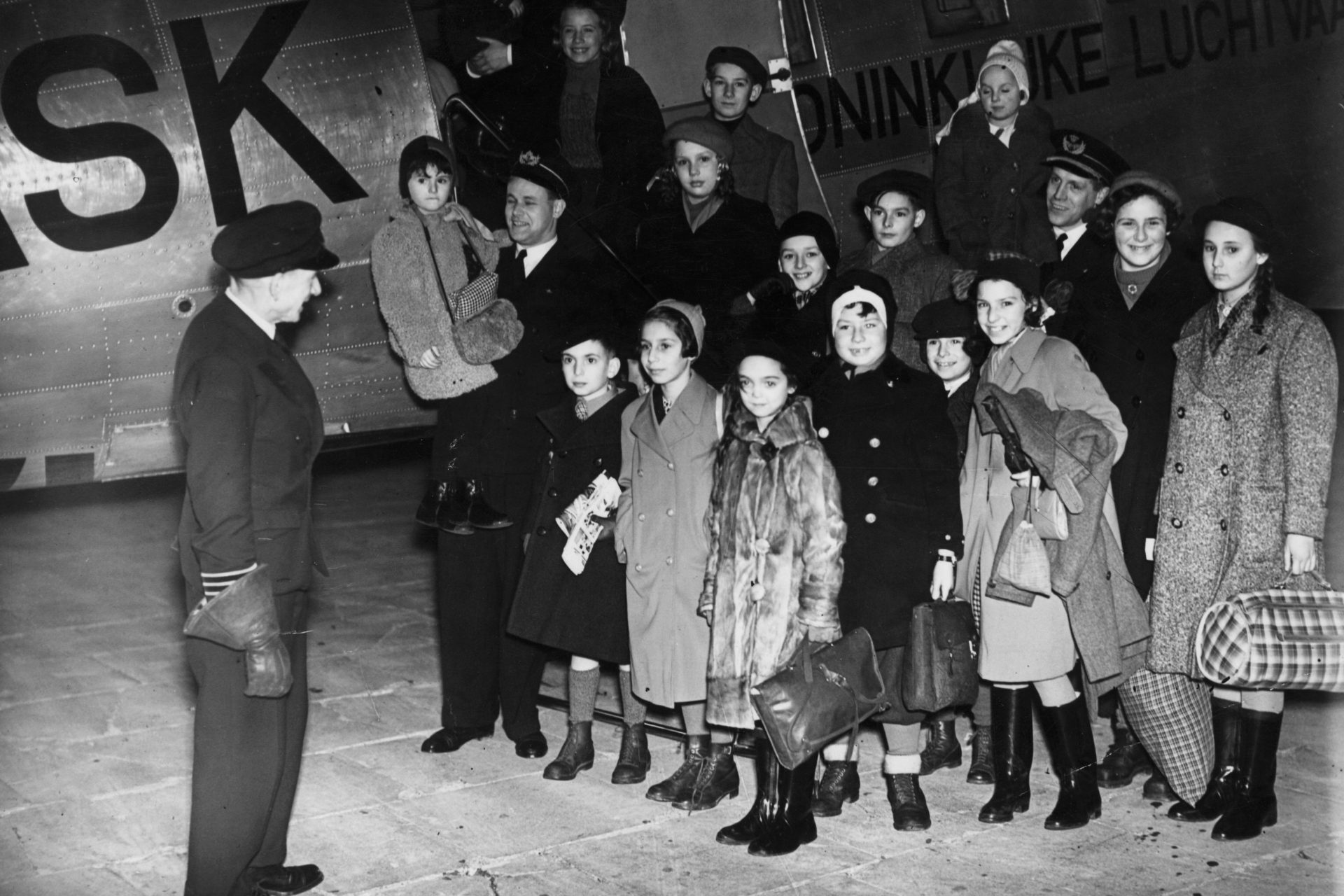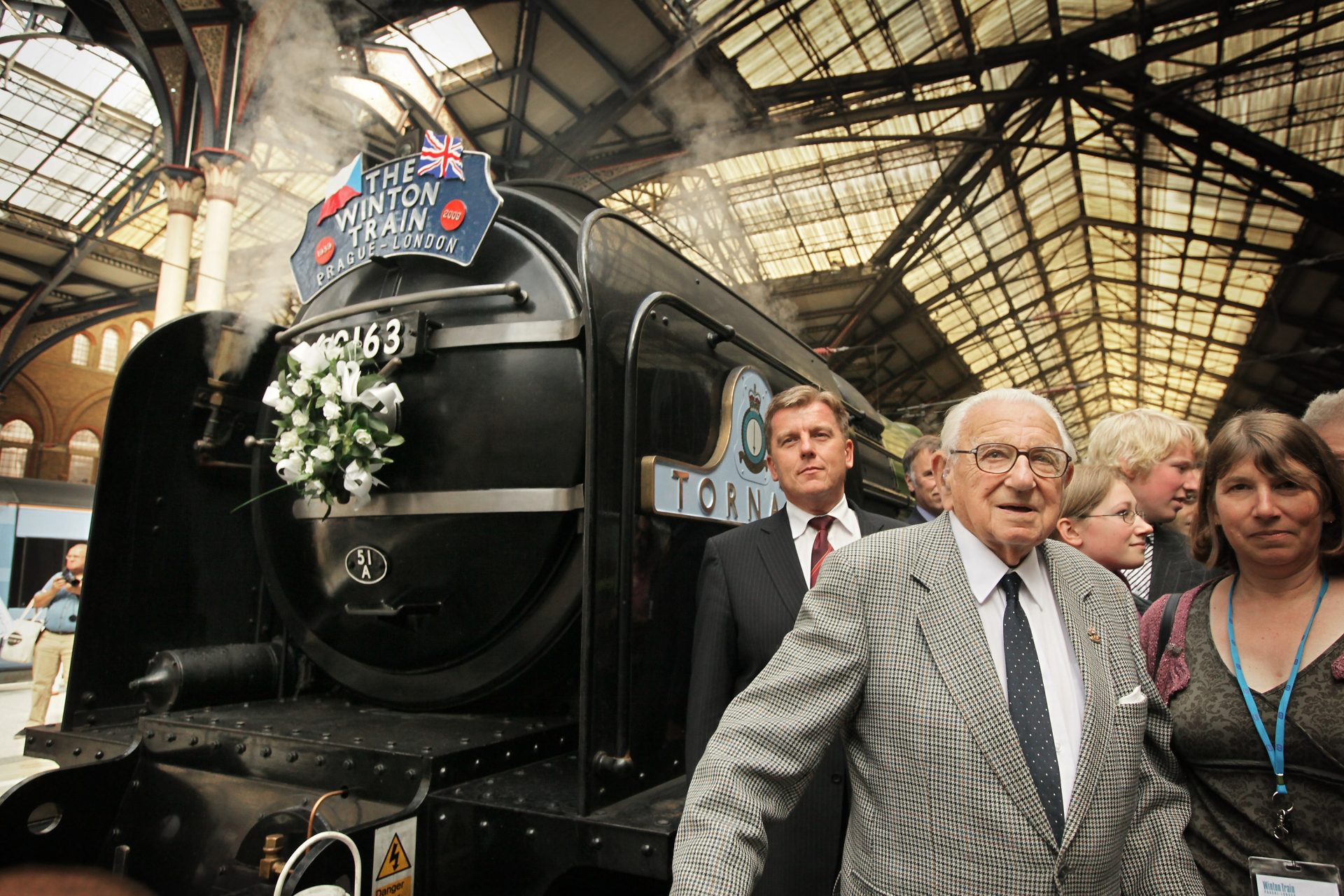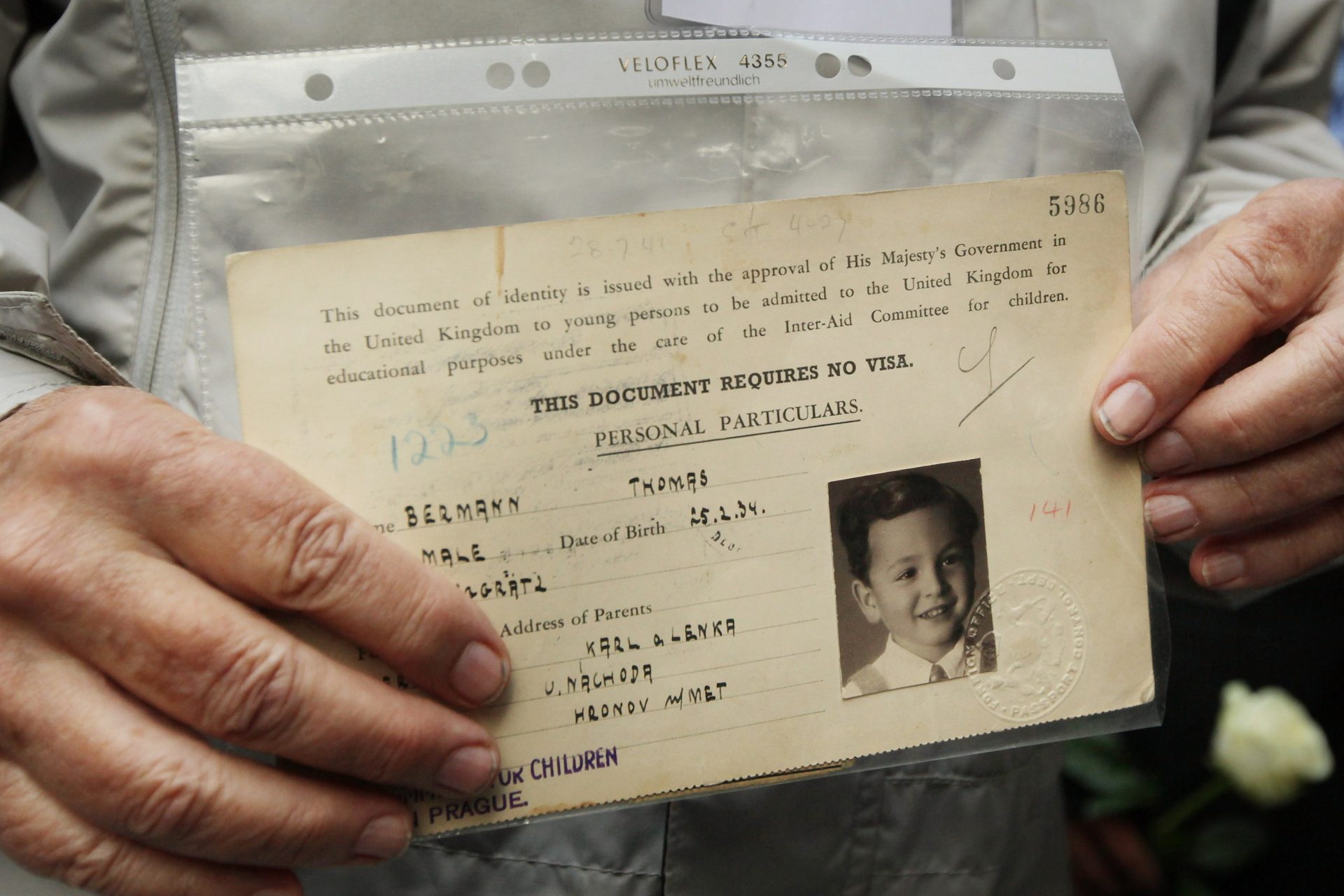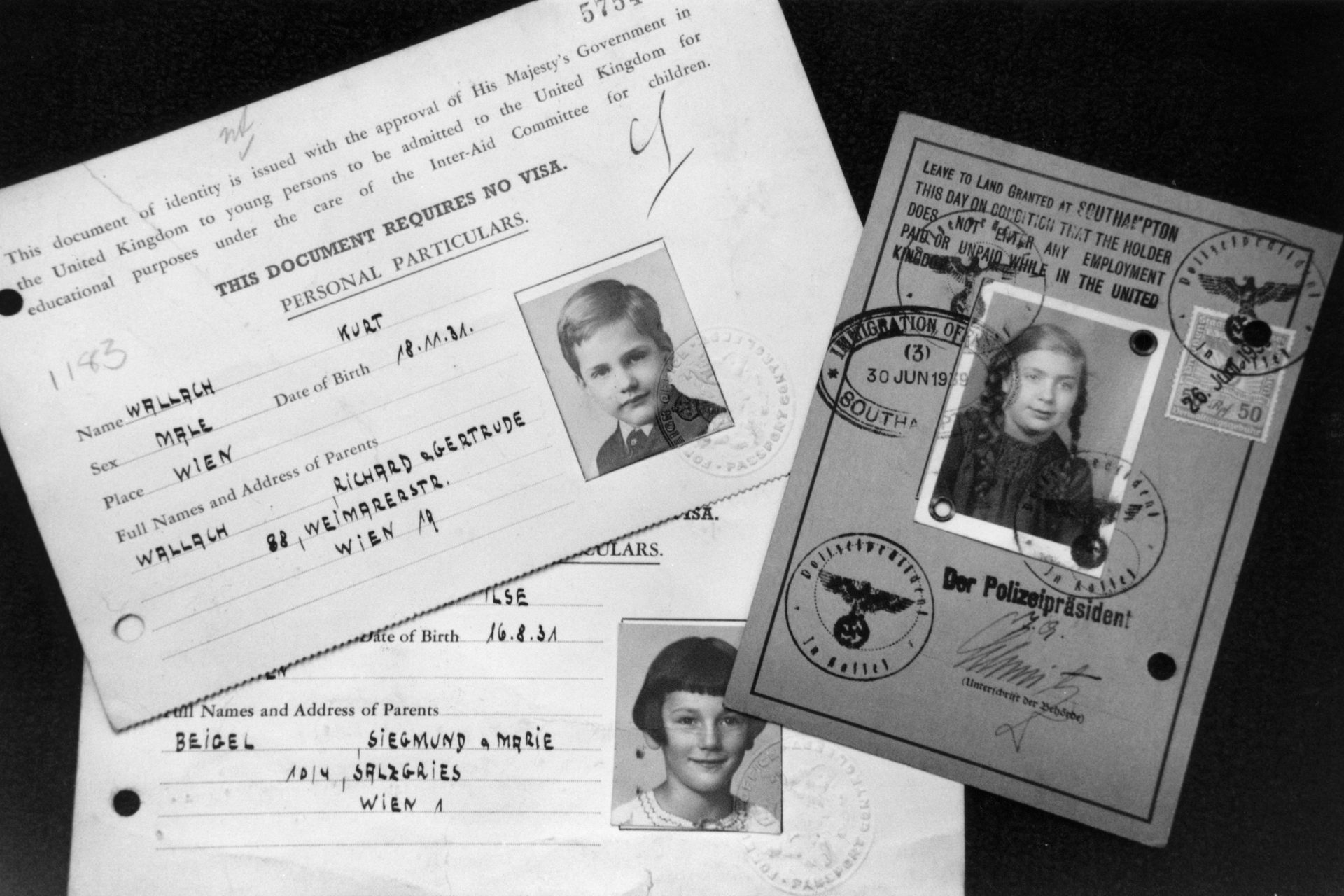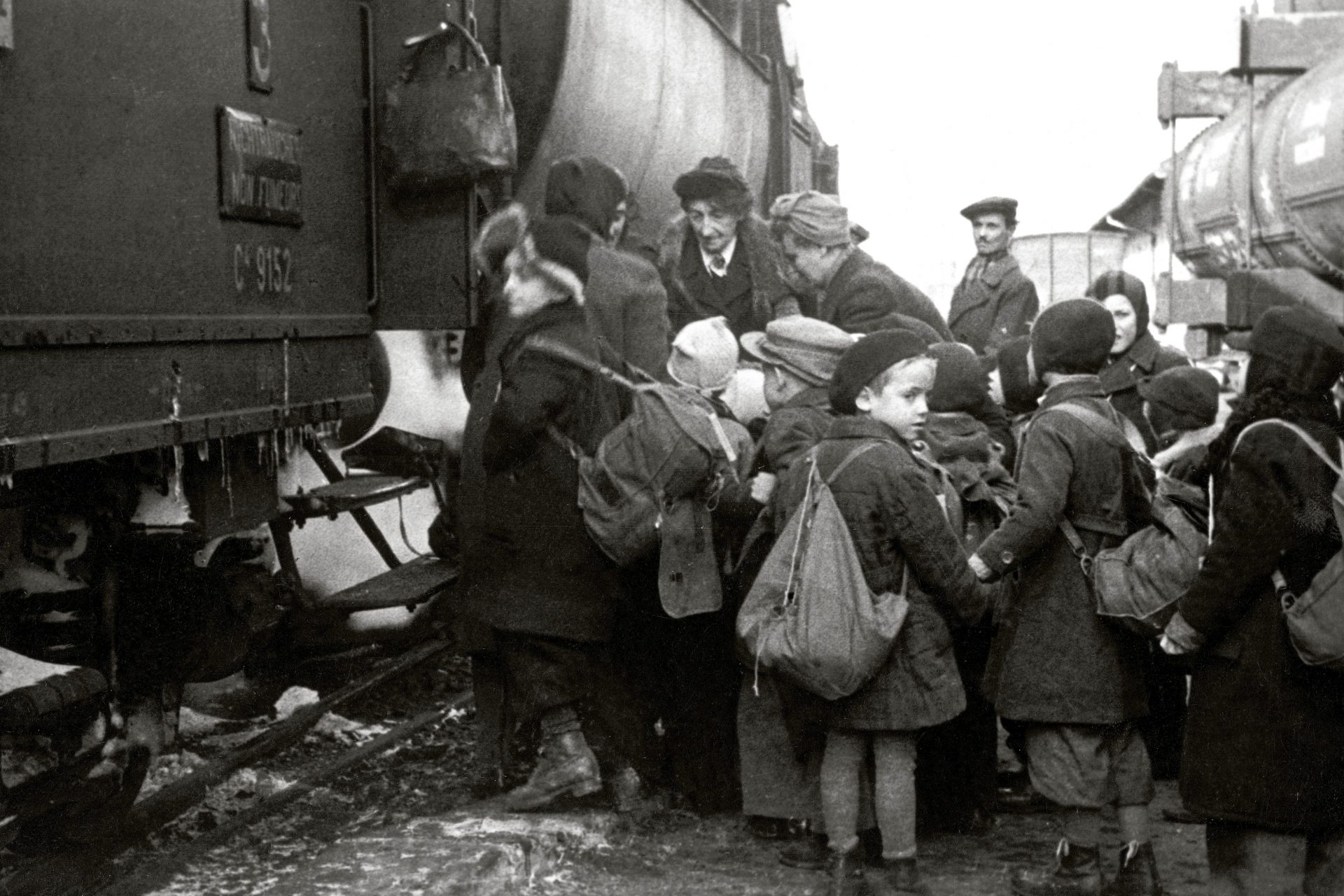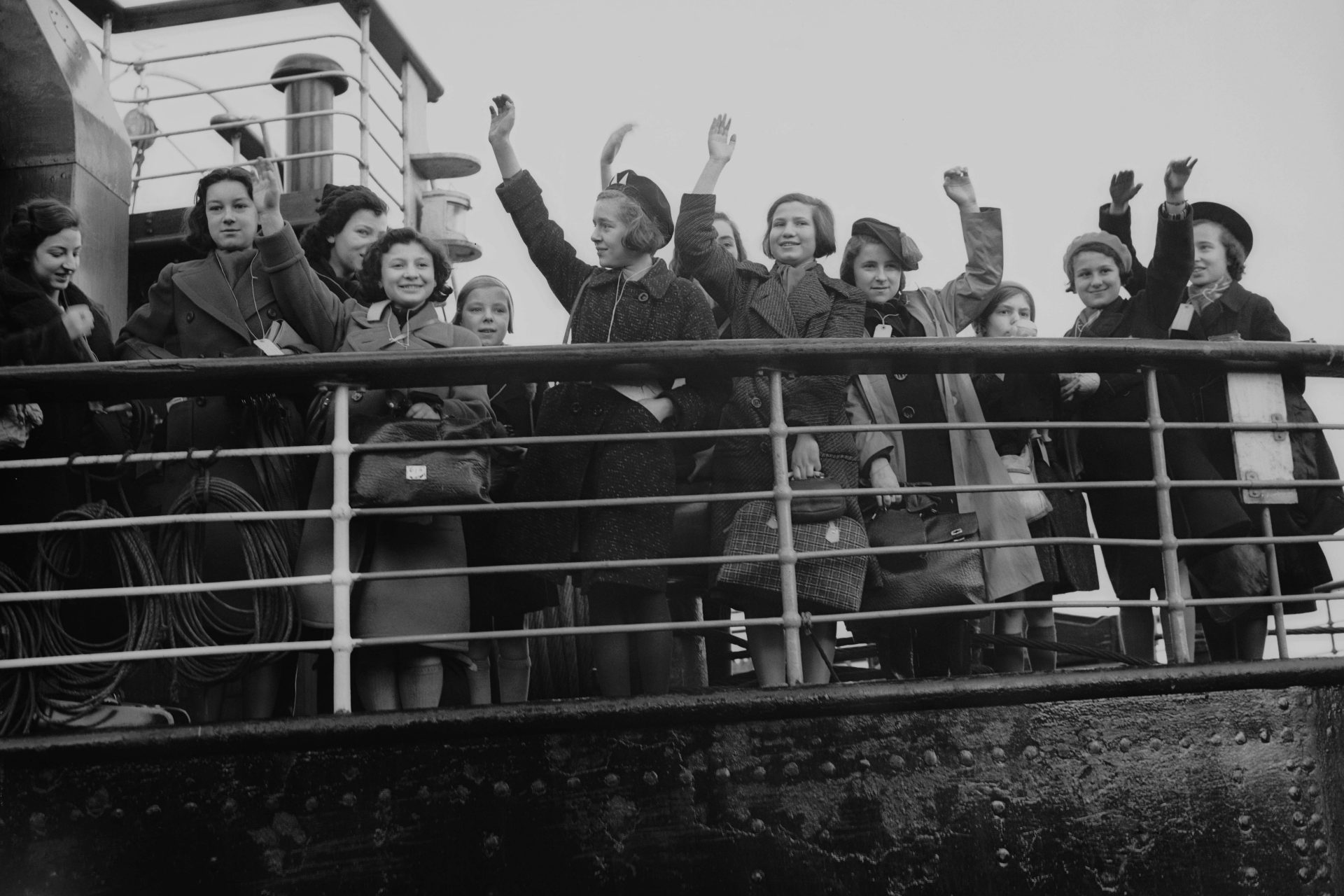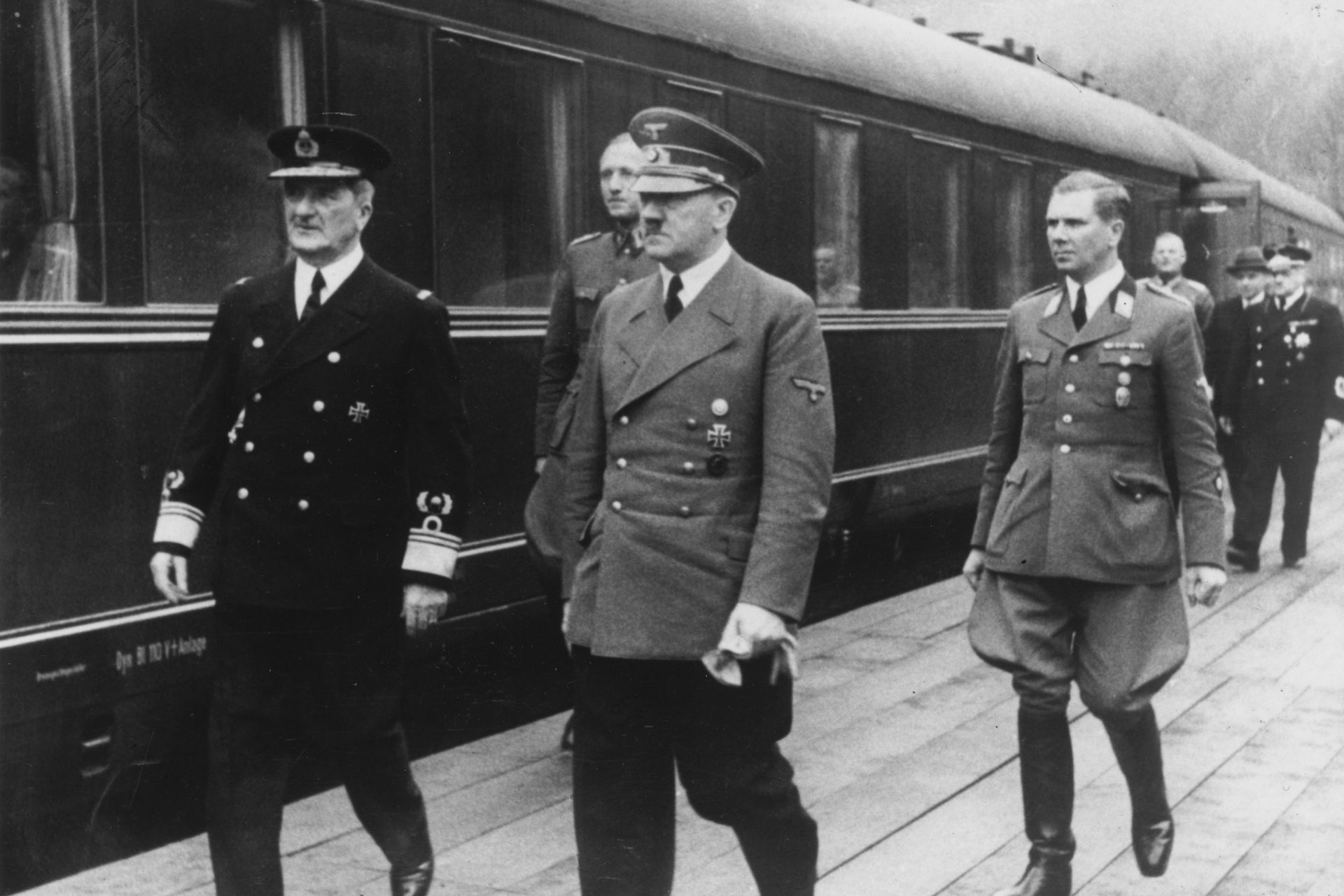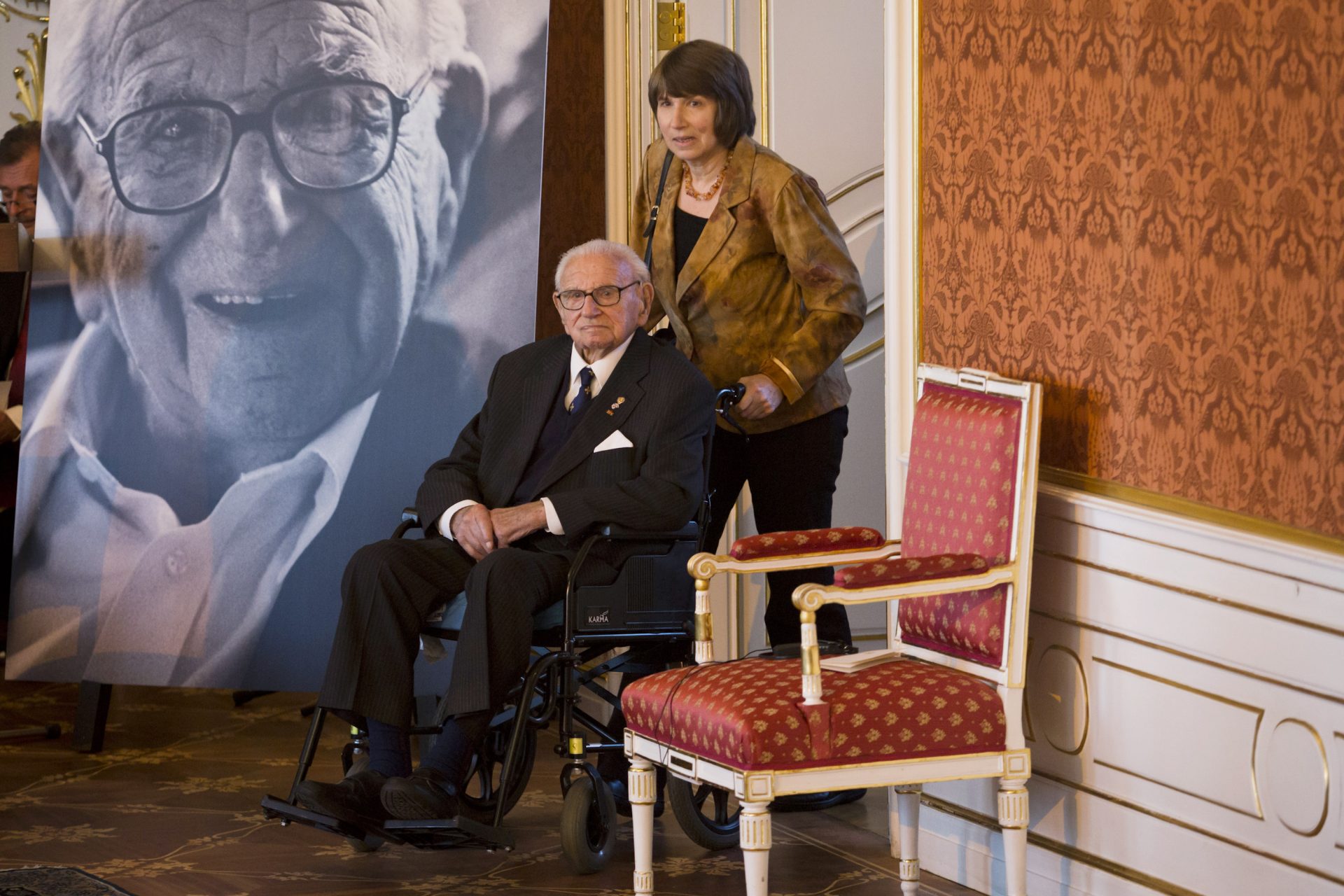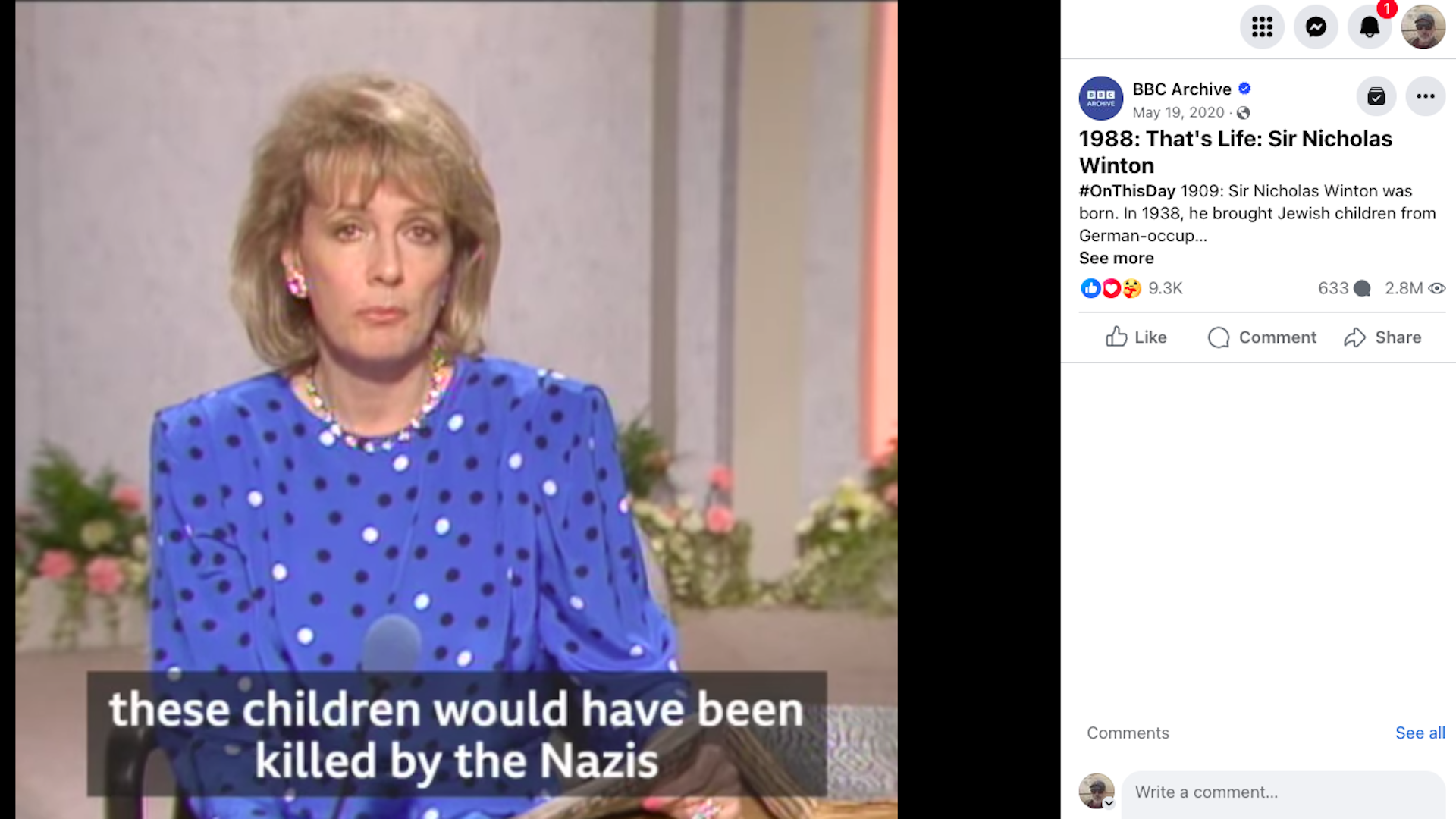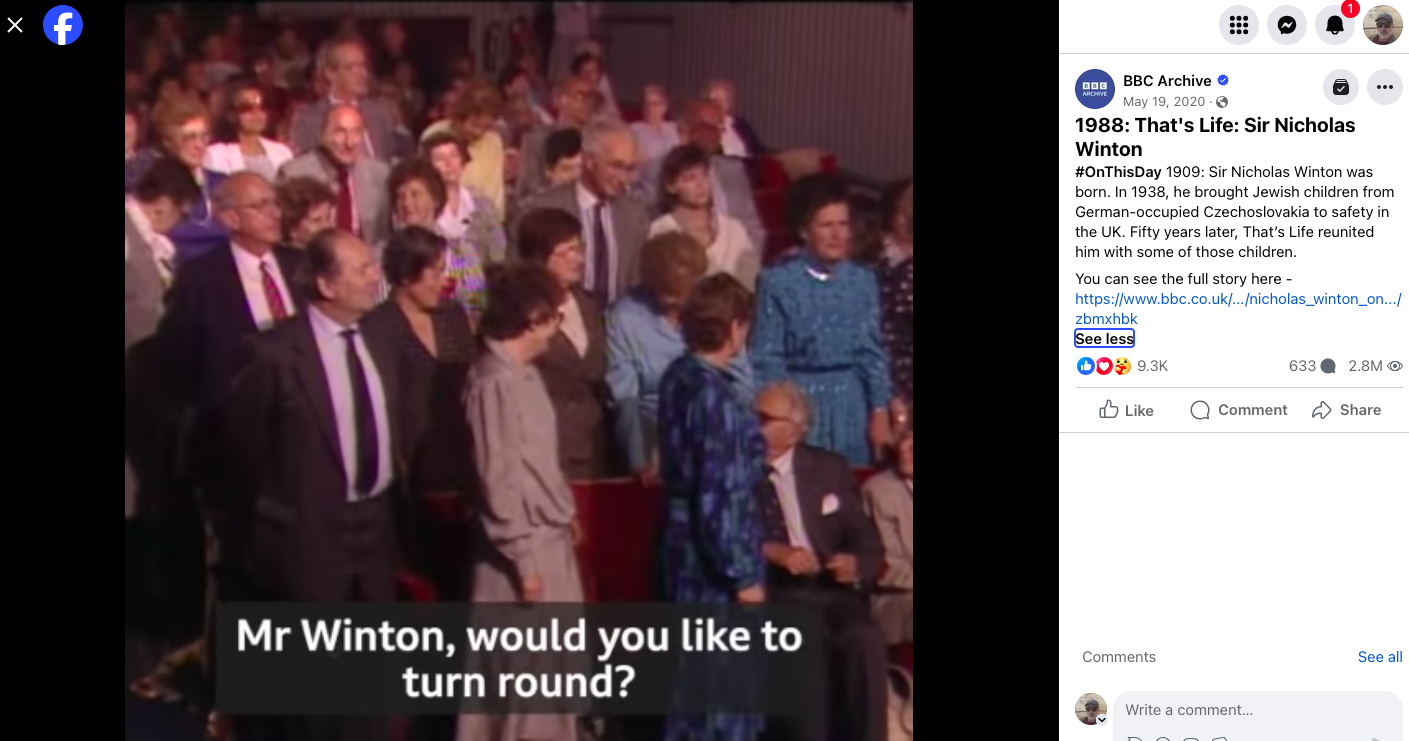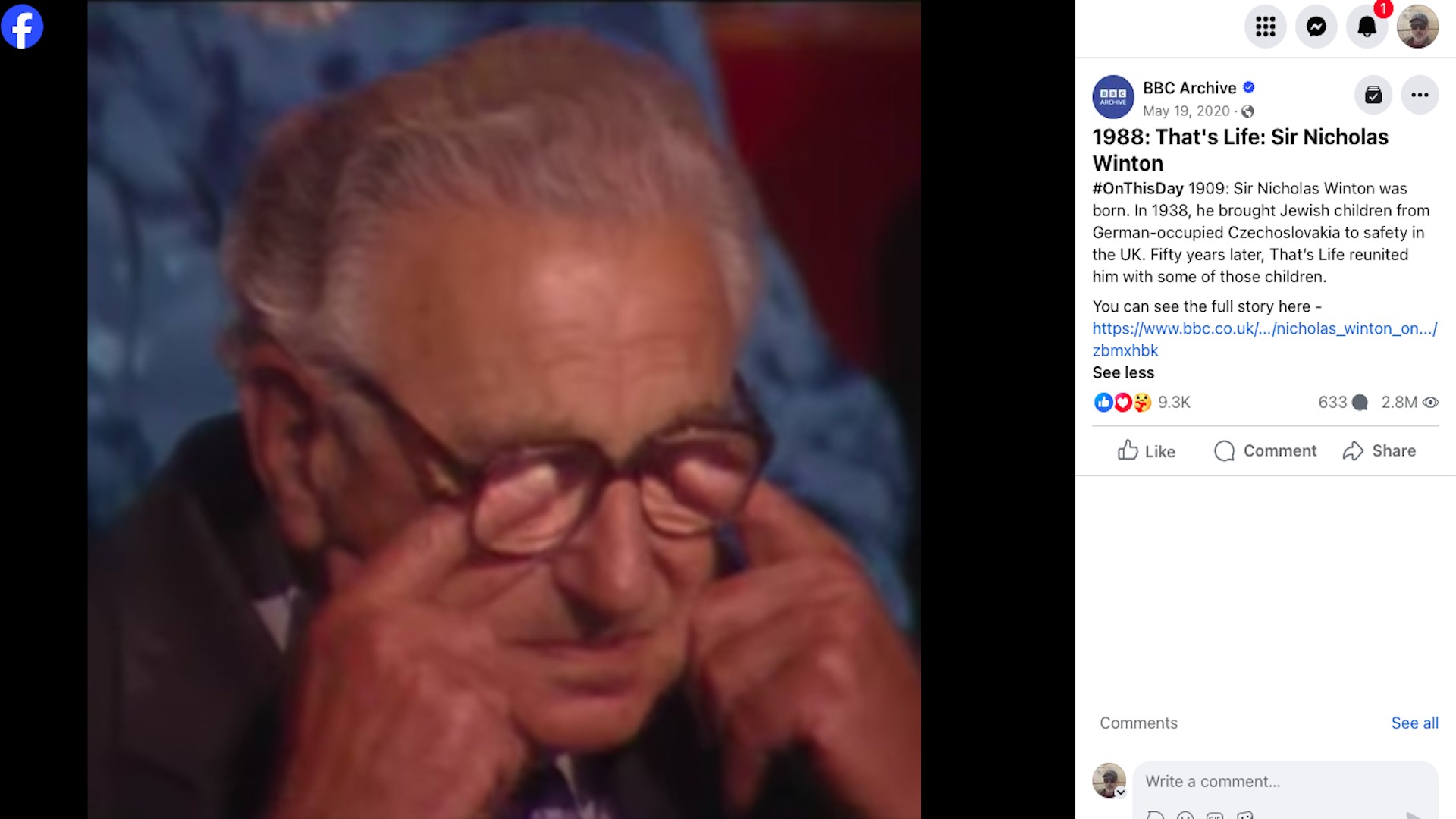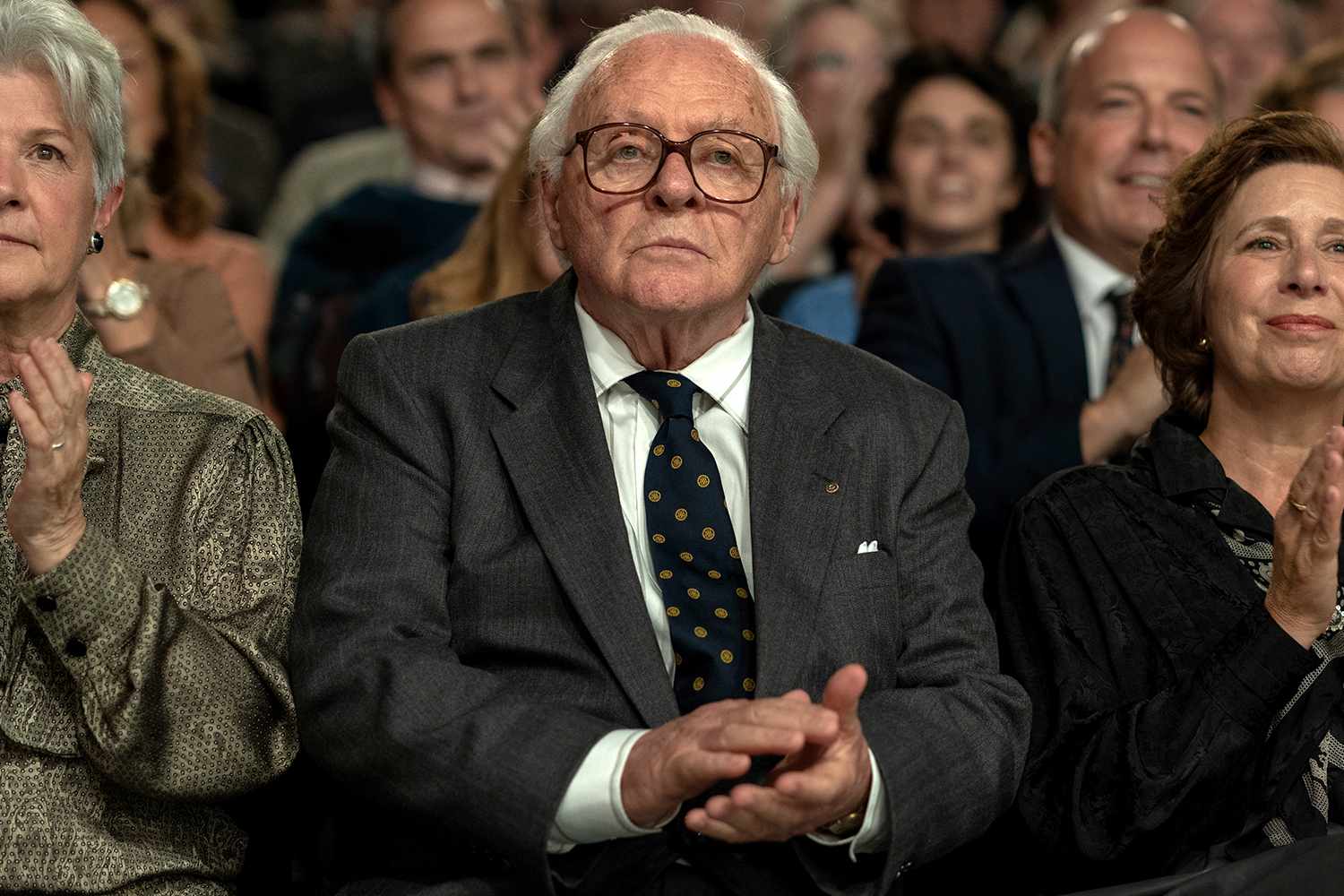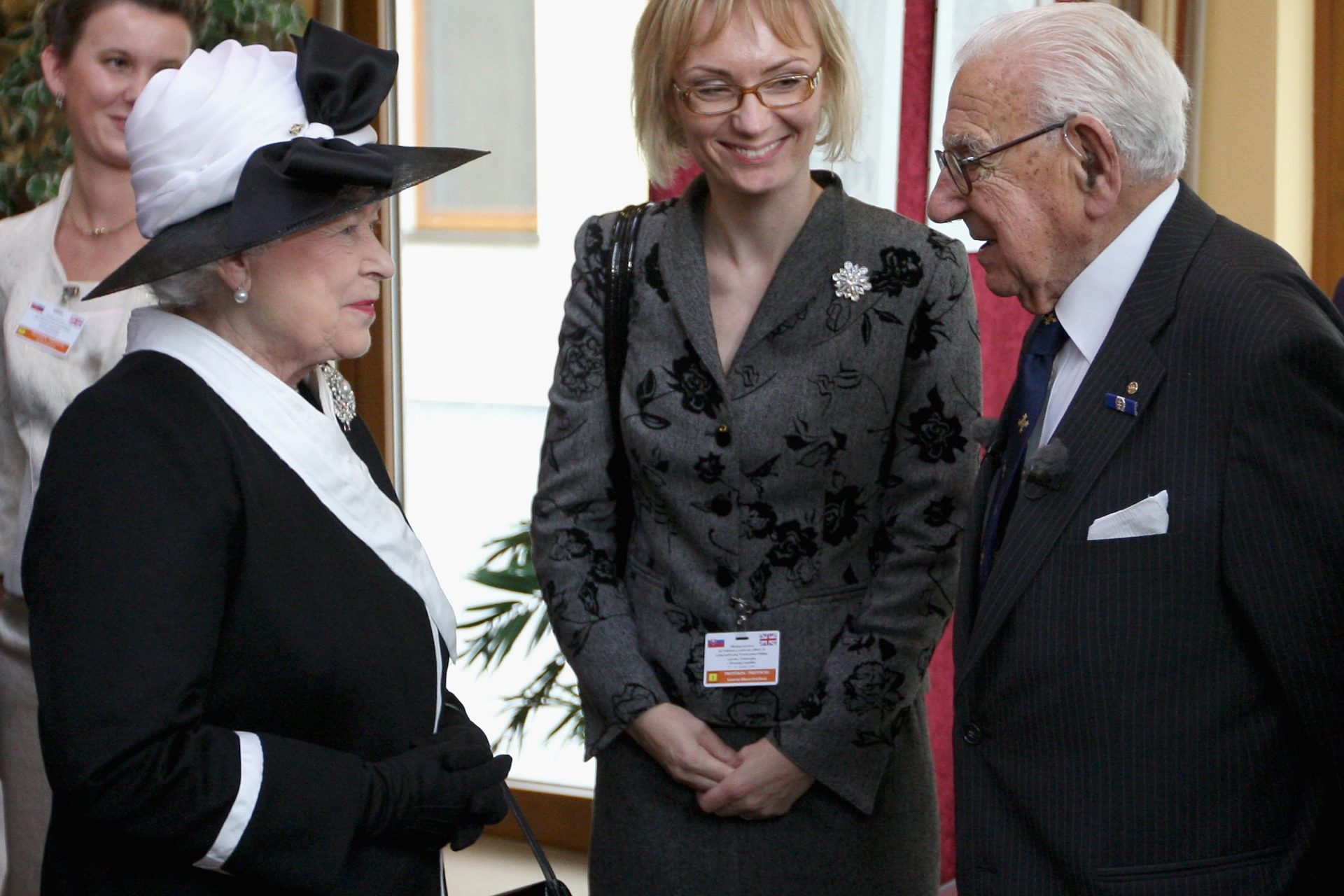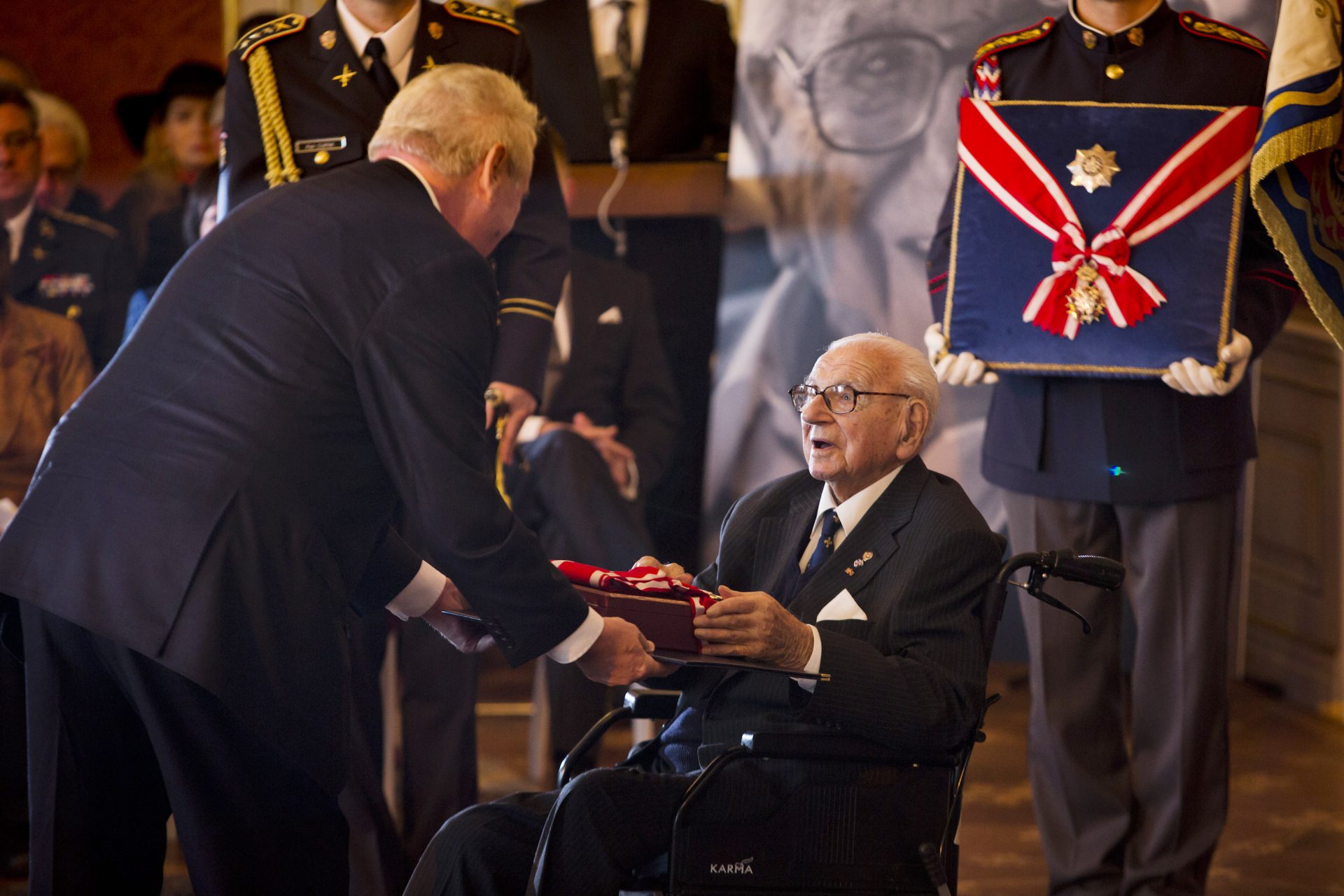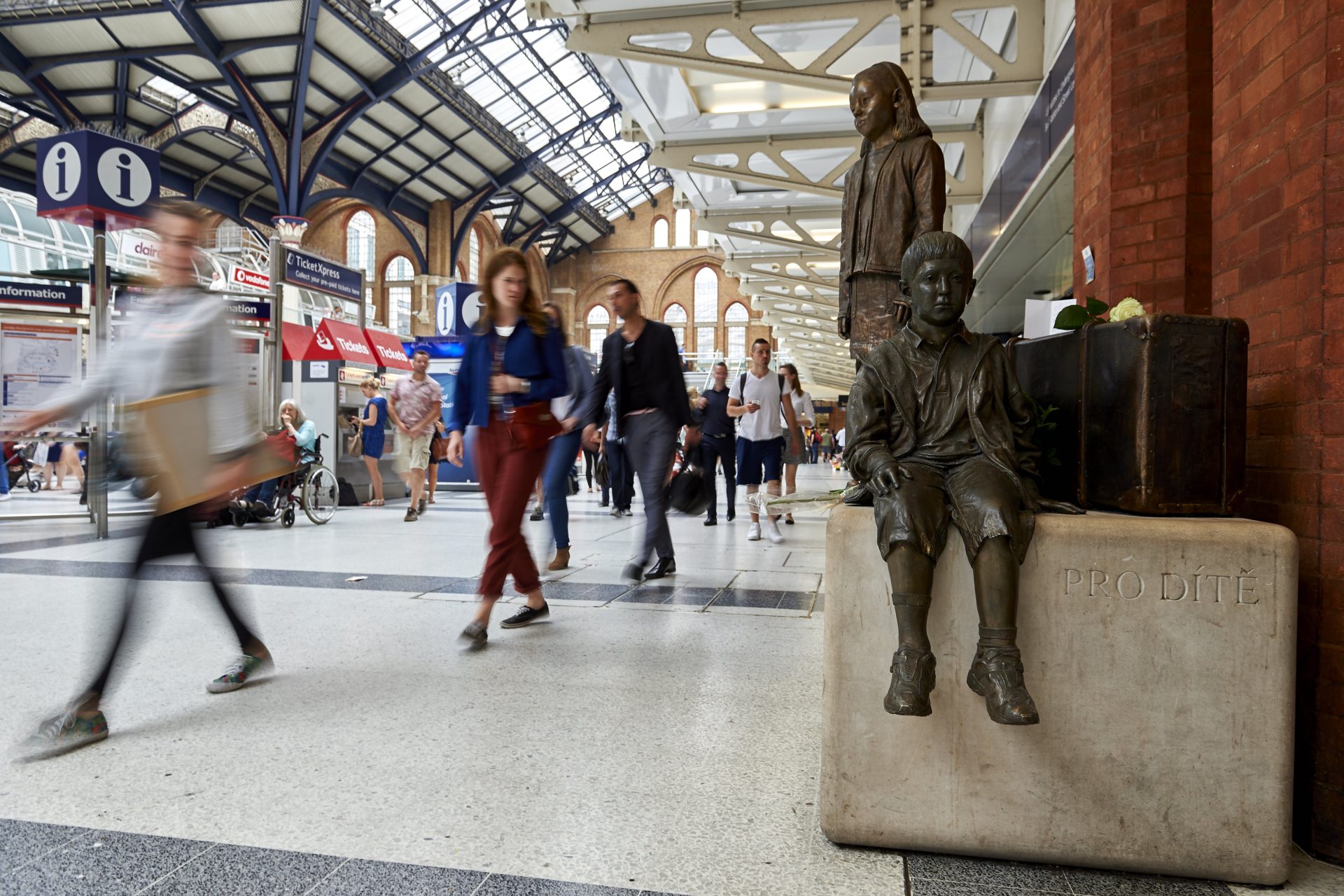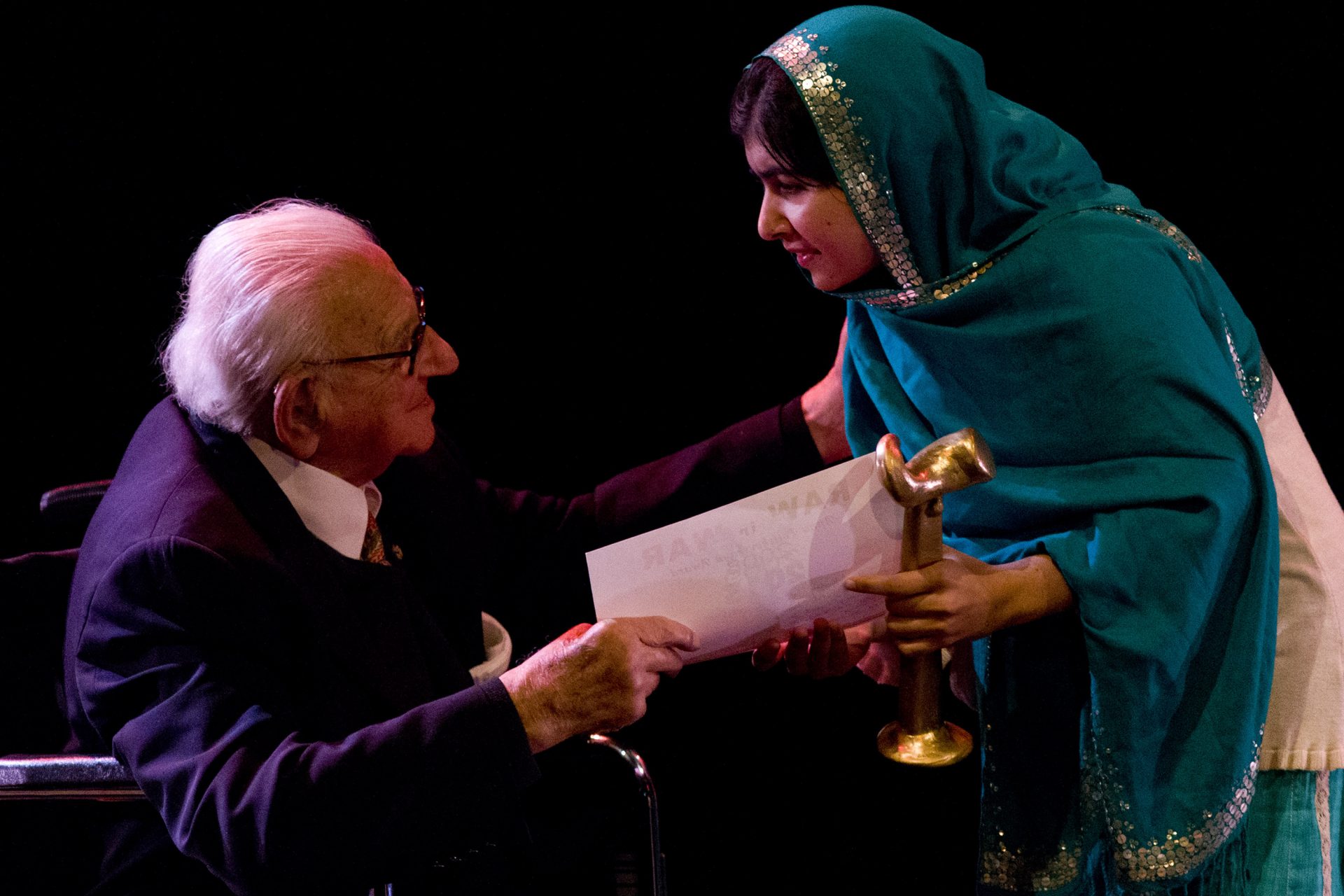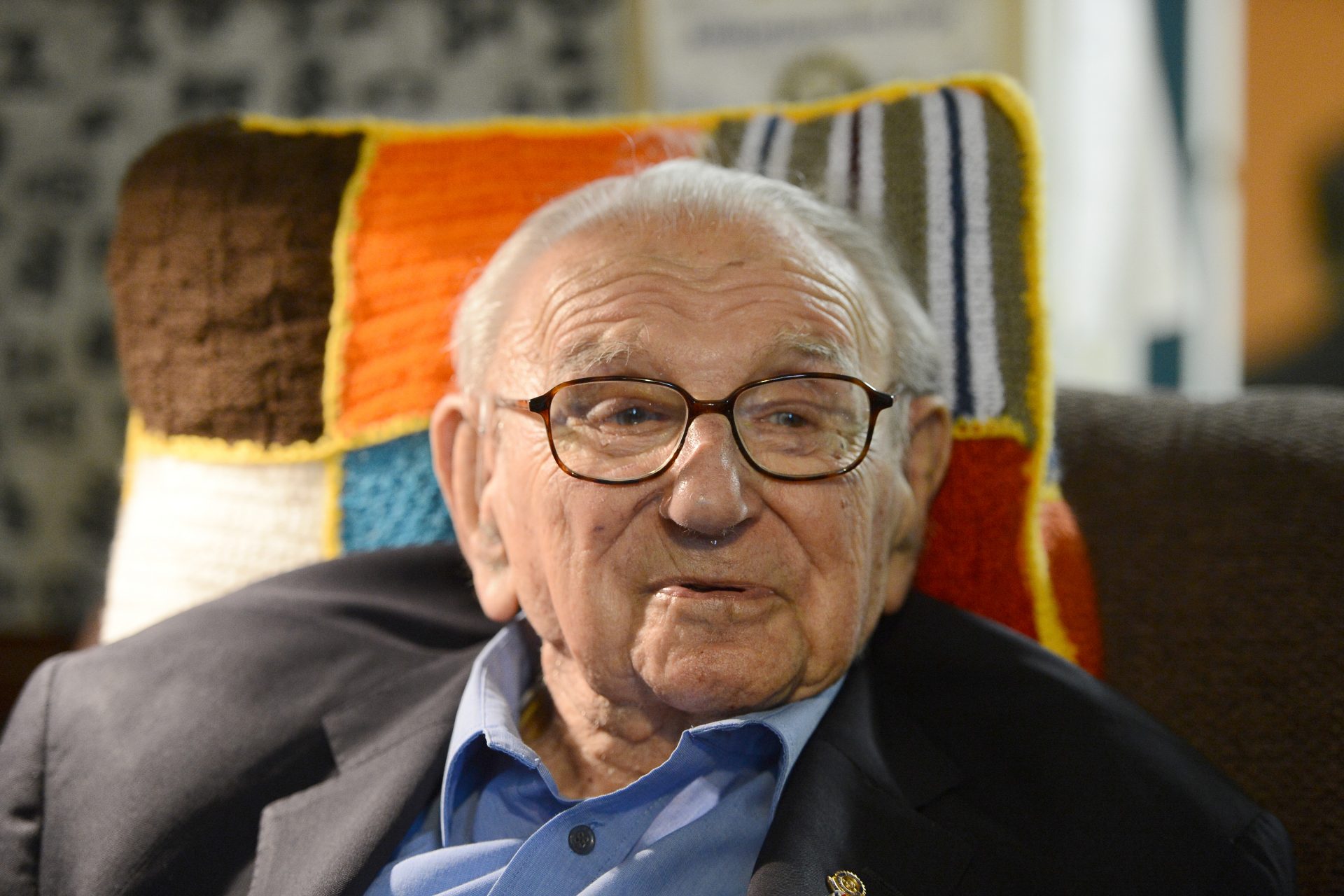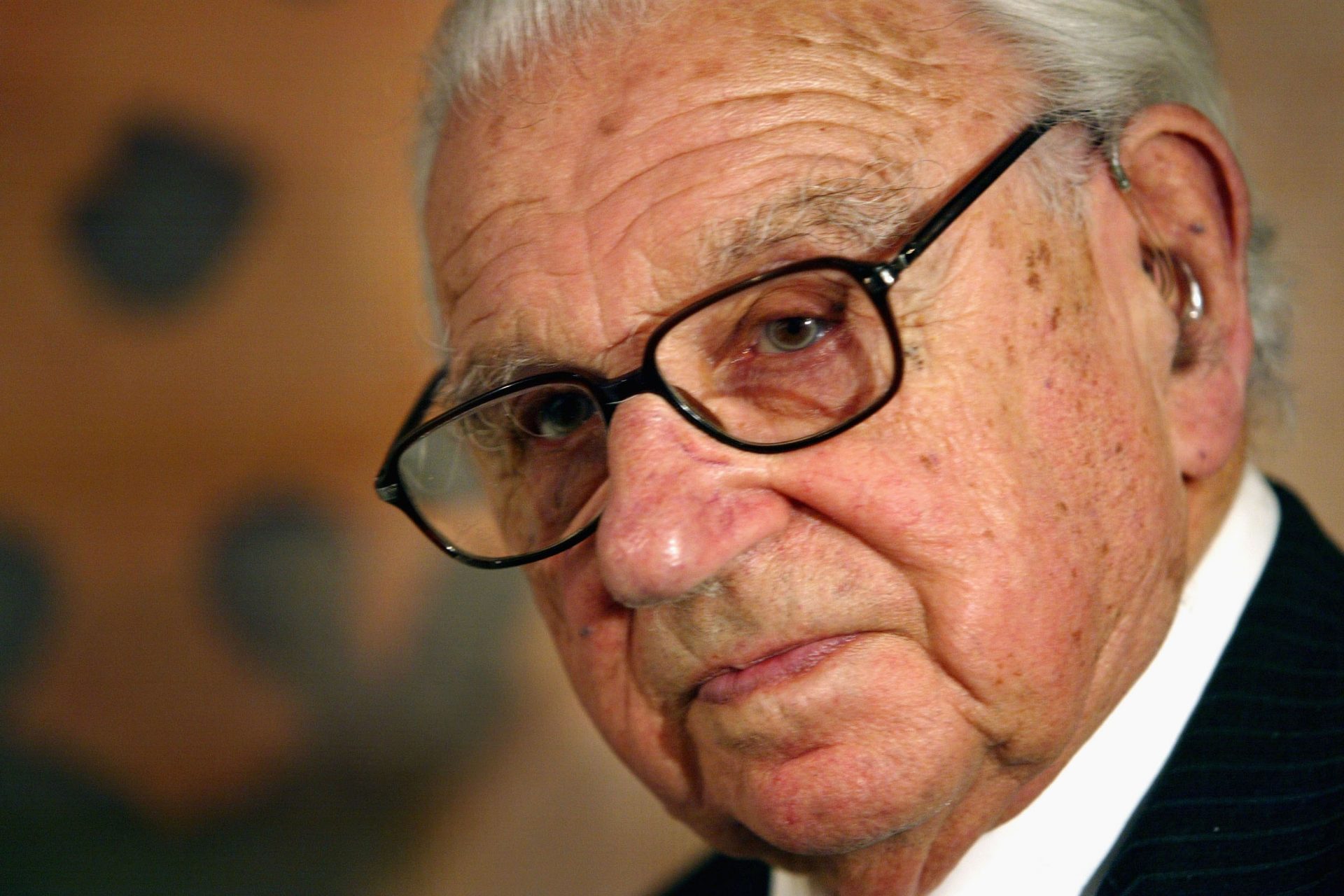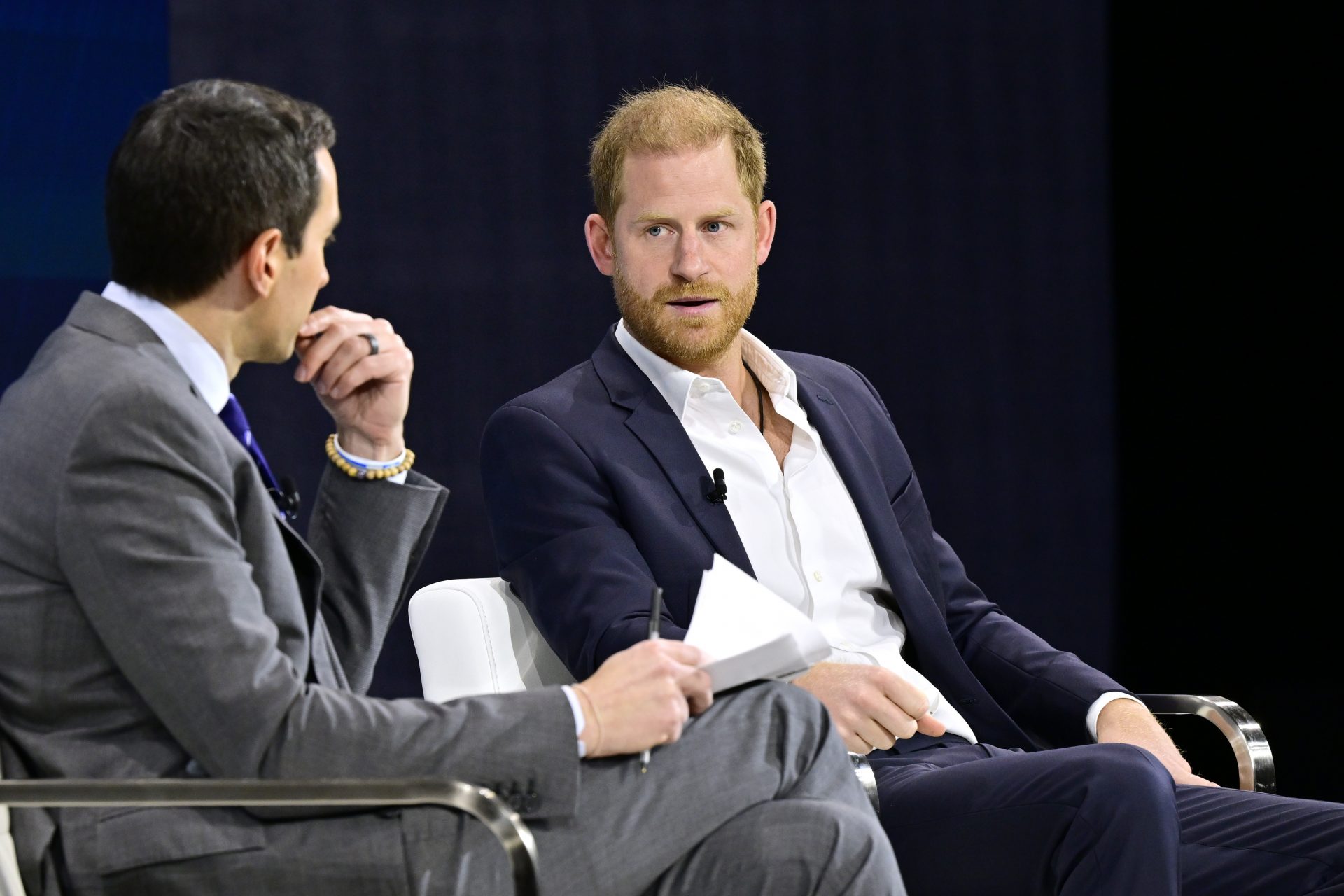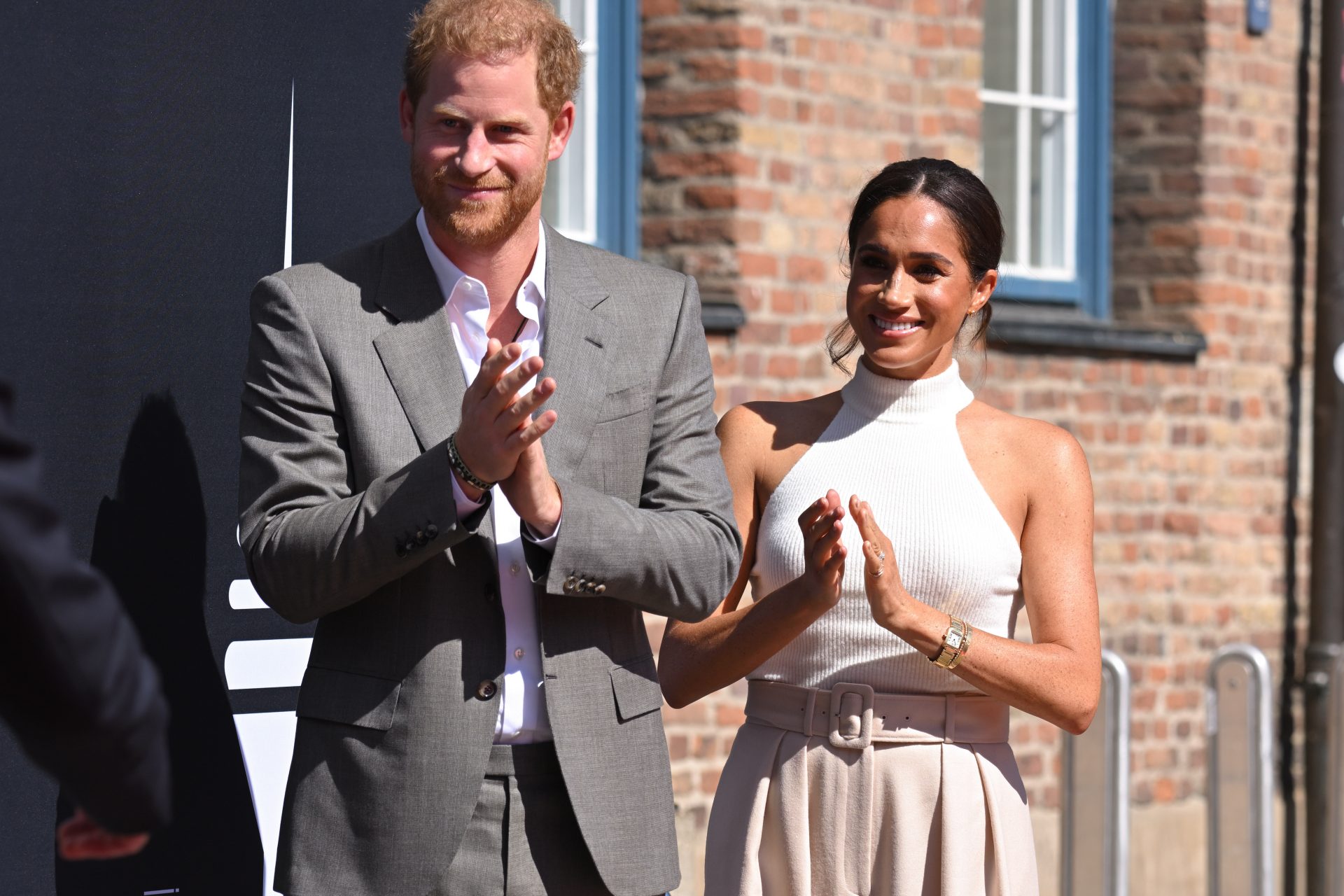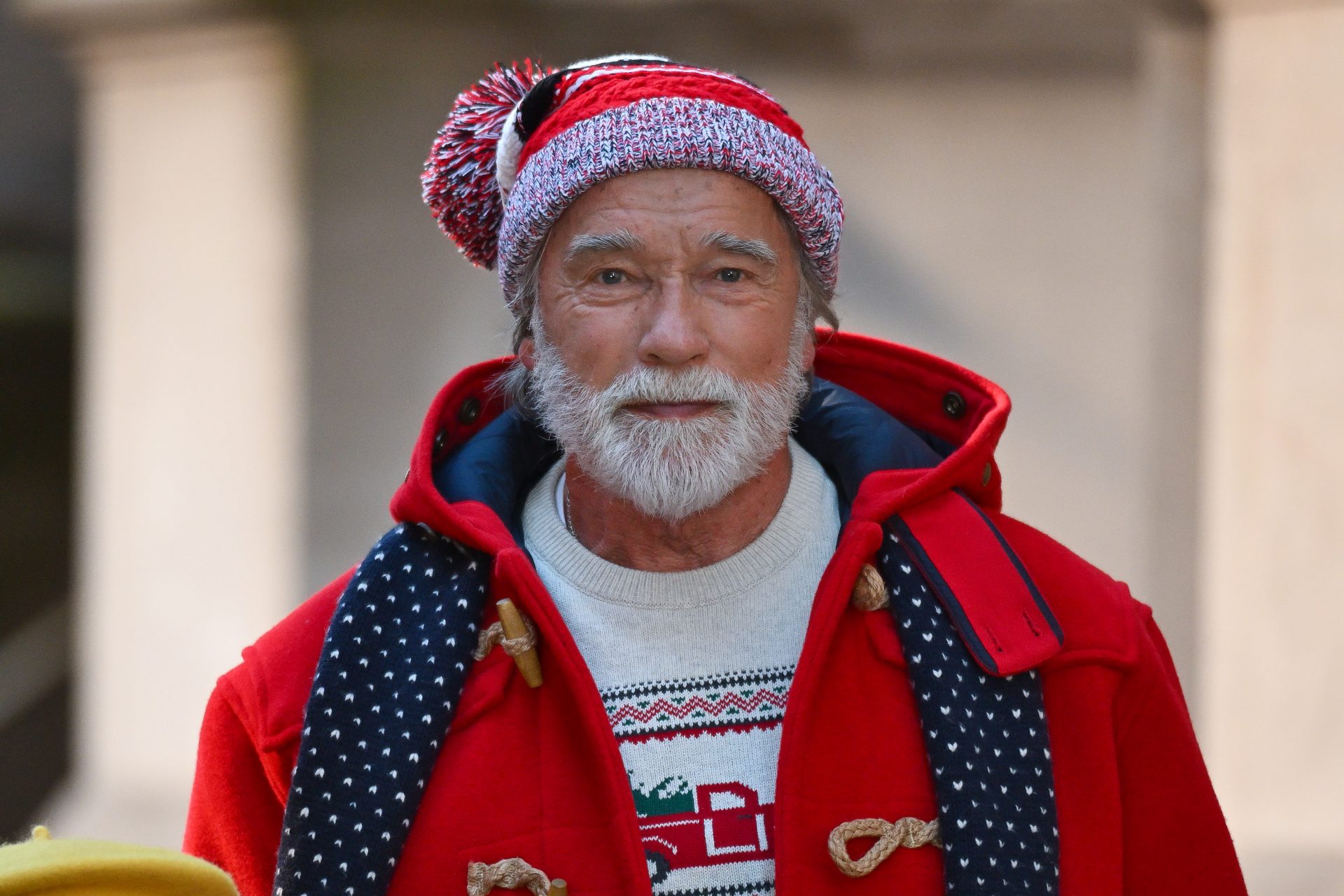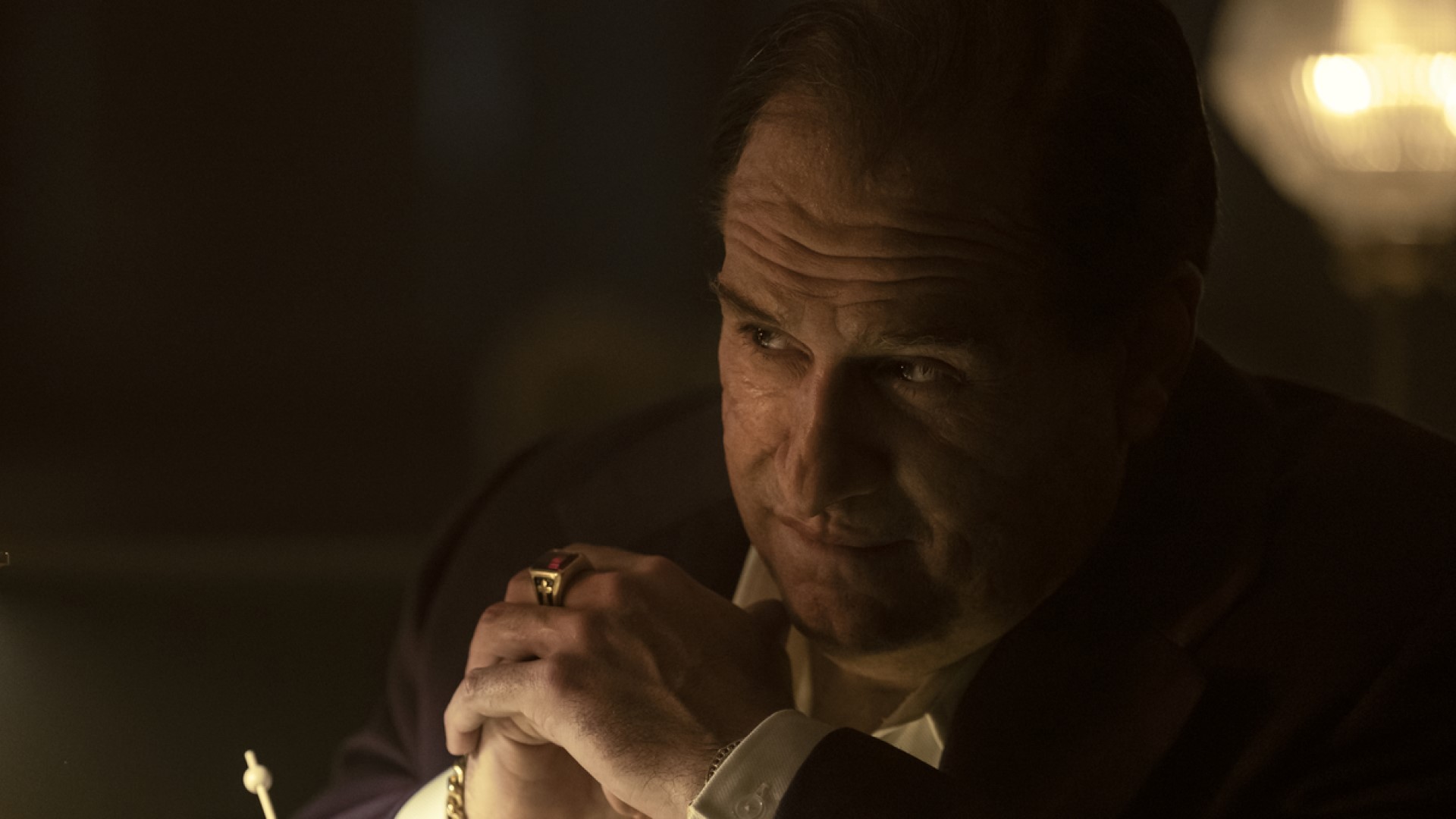Photos: Nicholas Winton, the 'British Schindler' who saved 700 children
A new film, 'One Life', starring Anthony Hopkins, Johnny Flynn, and Helena Bonham-Carter, charts the extraordinary story of the late British humanitarian, Nicholas Winton.
In 1939, on the brink of WWII, Nicholas Winton was one of a group of people who saved the lives of 669 Czechoslovakian children at the hands of Adolf Hitler and the rise of Nazi Germany.
Image: 'One Life', Warner Bros. / Bleecker Street
Originally from Berlin, Winton's German-Jewish family moved to Hampstead, north London, changing their name from Wertheime to Winton to better integrate into British society. There, Nicholas was born.
Photo: Waldemar Titzenthaler / Wikimedia
Educated at Stowe School, Winton famously failed his exams but later flourished as an apprentice on London's stock market, a trade he was successful at for the rest of his life.
Interested in human justice, the young Winton was heavily influenced by the socialist principles and politics of Welsh Labour MP, Aneurin Bevan. Bevan famously spearheaded the formation of England's National Health System.
In 1938, before the outbreak of WWII, Winton cancelled a planned skiing holiday in Switzerland to visit Czechoslovakia. There, first-hand, he witnessed people desperate to escape the country before the inevitable invasion of Hitler and the Third Reich.
Hitler's chilling plan to cleanse the world of its Jewish population would inevitably include children.
Mass evacuation, with no end destination, was not an option for many families, but efforts were made to send young people to safer areas.
Trains were organised to evacuate the young and the needy. One particular engine later became known as 'The Winton Train'.
The UK was the only country willing to take in the refugees. Children were required to have a forwarding address and a £50 bond to secure a place. No visa was required.
Advertisements were placed in British newspapers and magazines, with portraits of the children. Host families were able to pick who they wanted to shelter.
Between March and August of 1939, Winton and his associates organised for 669 children, on eight separate journeys, to make the great escape from Czechoslovakia, prior to inevitable restrictions.
The Czechoslovakian children boarded a steam train at Prague that took them on a tense journey through the heart of Germany and onto the Netherlands, where they boarded a ferry to the east coast of England. From there, they travelled to London and newfound freedom.
Winton's biggest regret was not being able to send more children to safety. After war had been declared, hundreds of other youngsters were turned back at stations and ordered off trains. These individuals were unlikely to survive the brutality that followed.
After his brave efforts, Winton returned to the UK and settled down to a job at London's Stock Market. He married Danish secretary Grete Gjelstrup and had three children, one of whom, Barbara, authored a book - 'If It's Not Impossible' - about her father's remarkable life.
For nearly 50 years, Winton rarely talked about his experiences, and his achievements were unknown to most. But in 1988, the British TV programme 'That's Life' featured his story and brought him to the attention of the wider public.
Image: BBC Archives / Facebook
The same programme featured him again some months later, sitting, unbeknownst, in an audience comprised of many of the adult children he helped save.
Image: BBC Archives / Facebook
Overcome with emotion, Winton can be seen wiping tears behind his spectacles, an image faithfully reproduced in 'One Life'.
Image: BBC Archives / Facebook
The film, despite its good intentions and stellar cast, received some criticism over its interpretation of the story. Some critics thought it sanitised events. others were put off by historical inaccuracies.
Image: 'One Life', Warner Bros. / Bleecker Street
Winton's heroic efforts remain undiminished. In 2003, he was knighted by Queen Elizabeth II for "services to humanity, in saving Jewish children from Nazi-occupied Czechoslovakia."
In 2014, Winton was awarded the highest honour of the Czech Republic, the Order of the White Lion (1st class), by Czech President Miloš Zeman.
On the platform of Prague railway station, a bronze statue of Winton and a group of child refugees is a fitting tribute to his humanitarian endeavours. There is also a statue at London's Liverpool St Station, the children's final destination.
In his later years. Winton awarded prizes to similarly notable people, including the Pakistani female education activist and Nobel Peace Price Laureate, Malala Yousafzai.
After years of anonymity, a constant stream of international media reports kept the story alive. Although a somewhat reluctant interviewee, Winton always remained modest and unsensational about his wartime experience.
Nicholas Winton died in 2015 at the age of 106.
The man, who has since become known as 'the British Schindler', will always be remembered as a tenacious lifesaver. Generations of people exist as a result of his selfless efforts.
Follow Showbizz Daily to stay informed and enjoy more content!

